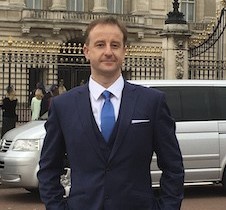
There has been speculation over the past 2 years on Macao’s tourism and casino recovery – how and when is the off-ramp? An exit to tourism and casino recovery will be further prolonged for Macao given the current lockdown phase, adding further speculation on the state of the industry in the last half of 2022. The industry is presently firefighting dealing with the ‘now’, looking to stem losses with cost control and efficiencies, while rolling out promotional packages to gather some revenues and keep a level of operations going. The costs incurred by the industry having to suddenly roll back Chinese New Year 2020 promotions also means caution on a return on investment calculation from Mid-Autumn 2022 plans and promotions.
I’ll shift the focus a little here to Macao 2023-2033. The decade fits with the new license concession period, and essentially meaning 2023-2033 could be categorized as a new phase of tourism development. These next 6 months provide time to consolidate and present a Macao recovery strategy for the longer term. And given the dramatic fallout from COVID-19, crucially build in a tourism resilience framework as well, aimed at limiting negative consequences for future crises. The strategy feedback loop means presenting expected outcomes and a big picture of Macao’s tourism environment by 2033.
Presenting several ‘what ifs’ to Macao in the 2023-2033 decade will mean that some scenarios or forecast models do not happen as envisaged – however it’s productive practice for tourism and hospitality teams to work through the process and the many moving parts that will influence future visitation to the city – to understand visitor profile, spending pattern, motives, and expectations. The ongoing pandemic and zero-tolerance policy remain part of the ‘what if’. There are multiple macro and micro perspectives. These include the notable expansion in recent years of physical infrastructure in the Greater Bay Area (land and border crossings, airport clusters, high-speed rail networks and highways), to the various policy and city governance issues. There are many considerations, and each dynamic in terms of ability to influence Macao future visitation – not important today, but more important tomorrow or vice versa – but just one may alter tourism development. Hard to do when dealing with the immediate challenge I understand – but over the 6 months creating these scenarios means being able to leverage quickly and launch towards recovery and marketing programs.
How about this forward-thinking team? Who leads? How is it financed? Who is involved (or excluded)? In tourism studies we often research and talk on tourism stakeholder theory and the importance of equitable collaboration and partnerships from the many involved in tourism – global case studies show that strong partnerships and consensus forming can grow a healthy, sustainable, and confident tourism industry. Naturally each company and government department can have its team creating scenarios on Macao’s recovery and best ways on leveraging quickly of this. Macao, and particularly the Cotai Strip, will be establishing its position within the Greater Bay Area both in competition and in coopetition with several cities. Therefore, the greater and broader the tourism collaboration and resource sharing is in Macao would certainly pivot the city to greater destination image distinction – and subsequently can lead to growth in visitation. In the shorter- term Macao can also benefit from the fact that most visitation is from the GBA. New markets take time and investment to cultivate, particularly in a recovery phase when there is caution on spending.
Uncertainty and conjecture will still continue to circulate on Macao’s tourism and casino recovery path due to the ongoing pandemic and impacts, but this can still be factored into tourism recovery scenarios going into 2023. However, as with every plan, the success will be in the execution of the plan. As time moves on, with this is a sense of urgency to seize on this decade window of opportunity.
*[Prof. Glenn McCartney has published several studies on COVID-19 tourism recovery in leading journals over the past few years. He is Associate Dean (Curriculum and Teaching) and Associate Professor in International Integrated Resort Management at the Faculty of Business Administration, University of Macau]



